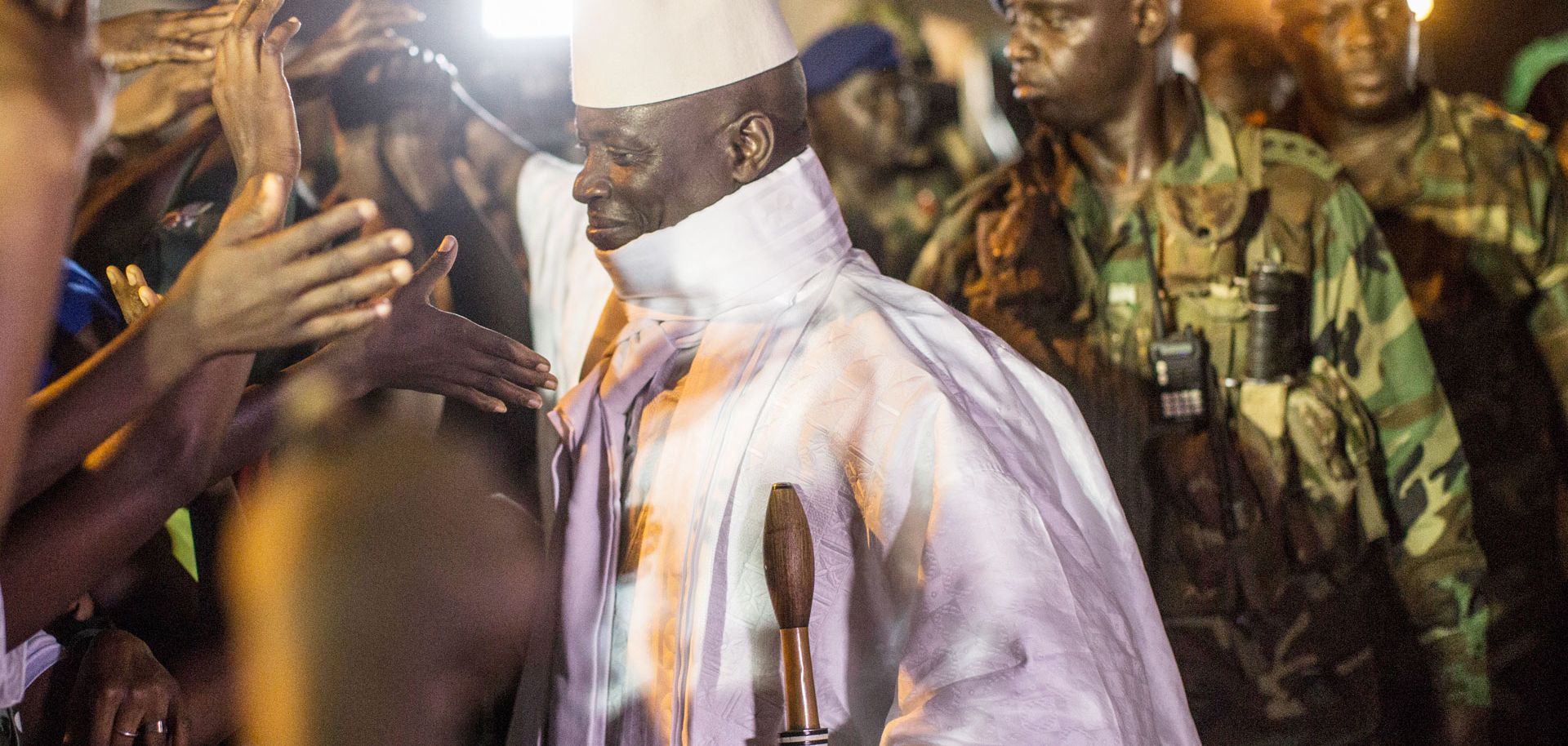ASSESSMENTS
The Politics of Giving Up Power in Gambia
Dec 14, 2016 | 10:48 GMT

(MARCO LONGARI/AFP/Getty Images)
Summary
Gambian President Yahya Jammeh once promised that he would rule over Gambia for a billion years, so it came as some surprise Dec. 2 when he lost re-election and conceded shortly thereafter. But Jammeh — in power since seizing it during a 1994 bloodless coup — does not yet appear willing to go quietly into the night. On Dec. 9 Jammeh rescinded his concession and rejected the validity of the election results, saying that voting irregularities had rendered the election null and void.
It was never easy to believe that Jammeh, with his reputation for strongman brutality, would step down so easily. The president has been accused of systematic and persistent human rights abuses, including the murder, torture and disappearance of real and perceived opposition figures. Giving up power would expose him and members of his government to prosecution, which the incoming president has promised to aggressively pursue. The success of Jammeh's efforts will depend on the appetite for intervention among the international community, particularly Senegal, and the actions of Gambia's military and other institutional forces that underpinned his two-decade rule.
Subscribe Now
SubscribeAlready have an account?
